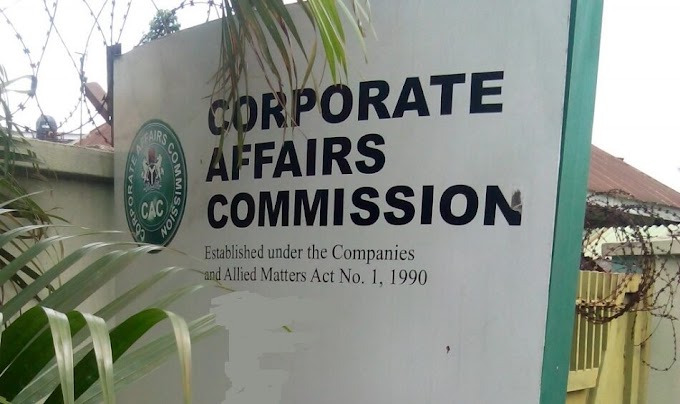PART V: DIVORCED
2020 Global
Corporate Divestment Study by EY reports that “more companies than ever say
they are holding onto assets too long. As they face even tougher, and likely
more limited, capital allocation decisions in a disrupted business environment,
they will need to reshape their portfolios. At the same time, shareholder
activists are preparing recommendations for corporate carve-outs as a result of
the crisis.
“The result
is that most companies are planning to divest within the next two years. With
the proceeds, sellers will look to invest in core businesses and fund new
technology investments as they re-imagine business models for the future.”
The EY
Study finds that 78% of companies expect to divest within the next two years;
57% within the next 12 months. Based on the EY corporate survey highlights, 72%
say they h0ld onto assets too long when they should have divested them, up from
63% in 2019. 65% say they will reshape their portfolio to prepare for a
post-crisis world. 54% say they will continue divestment preparation or
accelerate plans to divest as a result of the crisis. 52% say the need to fund
technology investments will make them more likely to divest in the next 12
months.
Mistakes in
doing a deal are not the only causes of corporate divorce, write Faelten et al.
Even the best corporate relationship does not always last forever. Sometimes a
corporate relationship that was right in the past is no longer so, as the
parent or the subsidiary or both change their strategy, the market conditions
alter significantly, or technological disruption drives fundamental changes in
the industry.
·
Divestment of underperforming assets/refocusing
portfolios on core growth areas
In the 2020
Global Divestiture Survey by Deloitte of 100 global organisations with revenues
greater than $500 million to understand their perspectives on sell-side
activity and divestitures, it is reported that corporations may review their
portfolios to determine if they are the right owners for a particular business.
If the existing portfolio is not delivering optimal shareholder value or does
not have a clear strategic fit, companies may still choose to divest, wind
down, or spin off underperforming or noncore assets.
“Over the
last 10 years and the run the economy’s been on, a lot of companies have been
on somewhat of a buying binge. Now, during the crisis, it’s really time for
them to refocus their business and think about where they’re going to invest
and where they’re going to get the capital to invest,” says Mike Dziczkowski,
US Risk & Financial Advisory partner, Deloitte & Touche LLP, in the
Deloitte Survey. “Divestitures really allow them to think through their
strategy in potentially selling off some noncore assets. Then they can take
that capital and they can use it to fund either day-to-day operations or future
investments in core businesses.”
AXA Mansard Insurance PLC divestment in AXA Mansard
Pensions Limited
On August
7, 2020, AXA Mansard Insurance PLC disclosed its divestment of its subsidiary,
AXA Mansard Pensions Limited to Eustacia Limited (a member of the Verod Group),
through a notification sent to the Nigerian Stock Exchange.
Commenting
on the divestment, Mr. Kunle Ahmed, Chief Executive Officer, AXA Mansard
Insurance PLC said the “transaction marks a new step in AXA’s broader strategy
to focus on and grow Life, Property & Casualty (P&C) and Health
business across all its geographies. The AXA Group sees great potential in the
Nigerian insurance market and believes AXA Mansard is ideally placed to capture
these opportunities, thanks to its market leadership positions in Health
Insurance, Property & Casualty and Life Insurance. We plan to capitalize on
our successes to further build our capabilities and continue to deliver the
best offers & services to our customers.”
·
A need to generate cash
A tale of Elon Musk as
narrated by Business
Insider
Musk grew
up in South Africa and taught himself how to code. At just 12 years old, Elon
Musk sold the source code for his first video game for $500. Then, at age 24,
Elon and his brother, Kimbal, founded Zip2 with $28,000 of their father’s
money. Zip2 provided a searchable business directory, almost like an online
version of the Yellow Pages with maps. Four years later, the brothers sold Zip2
for $307 million. Musk used his $22 million share to cofound the online-banking
service, X.com. Via merger, X.com ended up becoming PayPal, with Musk as a
majority shareholder. When eBay purchased PayPal in 2002 for $1.5 billion, Musk
made $180 million from the sale.
Musk and
other PayPal executives, like Peter Thiel and Reid Hoffman, have become known
as the “PayPal Mafia.” They took their gains from the PayPal sale and put them
into various start-ups and funds. Their investments and creations include
YouTube, LinkedIn, Uber, and countless others that have become major players in
Silicon Valley today.
As narrated
above, divestiture can be a means to generate cash, which you can use to pursue
other investment ventures.
·
Pressure from the Government
Access Bank divestment from SIPML
In February
2017, Access Bank divested its 17.65% equity shareholding in Stanbic IBTC
Pension Managers Limited (SIPML) following the Central Bank of Nigeria (CBN’s)
directive to divest SIPML in compliance with the CBN’s Regulation on Scope of
Banking Activities and Ancillary Matters.
The bank
sold its stake to the company’s majority shareholder, Stanbic IBTC Holdings
PLC.
Also, in January
2014, Access Bank announced the completion of its divestment from its Cote
d’Ivoire subsidiary, Access Bank Cote d’Ivoire, in line with the Central Bank
of Nigeria’s directive requiring Nigerian banks to either raise fresh capital
from the offshore capital market to recapitalise their foreign subsidiaries or
divest from them.
Tiktok in the US
Following
several reports of United States President, Donald Trump, threatening to ban
TikTok in the US, on August 6, 2020, the President issued a pair of executive orders
imposing new limits on Chinese social-media, TikTok and WeChat.
The orders
effectively set a 45-day deadline for an American company to purchase TikTok’s
U.S. operations. Also, the orders bar people in the U.S. or subject to U.S.
jurisdiction from transactions with the China-based owners of the apps,
effective 45 days from the issued date.
Mr. Trump’s
top reason for the orders is that TikTok poses an economic and
national-security threat to U.S. interests.
Before and
after the executive orders, several suitors have approached the Beijing-based
ByteDance Ltd., TikTok’s parent company, in a bid to woo TikTok’s U.S.
operation. Notable among the suitors are Microsoft Corp., Walmart Inc., Oracle
Corp., Facebook and Twitter.
On
September 13, 2020, the WSJ reports that “the battle over the future of TikTok
took a new turn as Oracle Corp. won the bidding for the U.S. operations of the
video-sharing app, people familiar with the matter said, beating out Microsoft
Corp. in a high-profile deal to salvage a social-media sensation that has been
caught in the middle of a geopolitical standoff.”
·
Pressure from shareholder activism
The main
goal of activist shareholders is bringing change within or for the company. And
this includes pressuring a company’s board of directors to divest some assets
of the company. They mount pressure by exercising their voting power or
influencing other shareholders.
2020 Global
M&A Outlook, published by J.P. Morgan’s M&A team in January 2020,
reports that shareholder activists’ focus on M&A activity continues to
drive a plurality of activist campaigns. Calls for companies to divest
individual assets have reached peak levels over the past three years with
demands for breakups and corporate clarity at an all-time high, increasing 13%
in 9M 2019 compared with 9M 2018. Opposition of announced transactions, where
activists are typically seeking a higher price rather than abandoning a deal
altogether, is also at a record high.
The end of Yahoo!
Just before
Yahoo! sold its core internet business (Yahoo!’s search, mail, content and
ad-tech businesses) to Verizon, Business
Insider reports on July 25, 2016 that “Marissa Mayer was
hired from Google as Yahoo!’s CEO in 2012 to turn around the business. But she
failed to stem the company’s revenue and profit declines, and a group of
investors led by the activist firm, Starboard, pressured management to sell
up.”
A year
later in June 13, 2017, the New York Times reports that “Verizon
Communications, the wireless powerhouse that was a cluster of local phone
companies when two Stanford University students began compiling the Yahoo! web
directory in 1994, completed its purchase on Tuesday of Yahoo’s internet
business for $4.48 billion.
“Yahoo!,
which once had a market value of $125 billion, will be combined with AOL,
another faded web pioneer it bought in 2015, into a new division of Verizon
called Oath.”
·
Spin-Offs
According
to Faelten et al., spin-offs can be an effective way of separating assets with
fundamentally different characteristics, allowing the stock market to price the
growth prospects of each segment more accurately.
eBay spun off PayPal
On June 26,
2015, eBay Inc. announced its board of directors’ approval for the separation
of eBay and PayPal into independent publicly traded companies. The separation
would occur through a pro rata distribution of all the stock of eBay’s
subsidiary PayPal Holdings, Inc. to eBay stockholders.
“eBay and
PayPal are two great, special businesses,” comments John Donahoe, the then President
and CEO of eBay Inc. “As separate, independent companies, eBay, led by Devin
Wenig, and Paypal, led by Dan Schulman, will each have a sharper focus and
greater flexibility to pursue future success in their respective global
commerce and payments markets. I am confident that eBay and PayPal each have
the right leadership team, strategy, structure and operational discipline to
create sustainable, long-term value for stockholders and deliver great
opportunities and experiences for customers worldwide.”
By July 17,
2015, eBay spun off PayPal, enabling the two companies to trade as separate
companies on Nasdaq stock exchange.
PepsiCo spun off KFC, Pizza Hut and Taco Bell
PepsiCo
Inc., an American multinational food, snack and beverage corporation
headquartered in Harrison, New York, spun off its KFC, Pizza Hut and Taco Bell
restaurant chains in 1997. The companies now share a corporate banner, Yum!
Brands, Inc. (formerly Tricon Global Restaurants Inc.).
According
to Washington Post, PepsiCo decided to cut its two-decade-old ties to the
restaurant business so it could concentrate on its more profitable soft drink
and snack foods businesses. It gave shares in the restaurant company to PepsiCo
stockholders.
It should
be noted however, that the financial and strategic rationale of spin-offs is
not always so clear; some deals use spun-off companies as a dumping ground for
either liabilities or less attractive assets that cannot be sold.
Preparing
for Divorce: Lessons from PE
In the
survey by Deloitte, it is reported that ultimately, success in divestiture
comes down to a prepared seller planning for flawless execution. Becoming a
prepared seller means understanding how a buyer will likely approach a specific
transaction. And with a myriad of different organisational cultures, there is
no one-size-fits-all approach, but private equity (PE) bidders typically share
some traits:
1. PE
companies tend to have strong operational strategies and negotiate with
suppliers as much as possible. Skilled sellers understand operational
intricacies, have supplier contracts and key terms readily available, and
understand where additional value opportunities lie.
2. PE
companies are often serial buyers and join a process ready to push the gas
pedal. Sellers should expect access requests to information quickly. If robust
analyses and underlying data are not available, a private equity bidder will
likely not only view the seller as unprepared and try to capitalise on
perceived weaknesses, but could also bombard the seller team with questions and
data requests.
3. Value
creation is critical for PE bidders. Inquiries or questions that often leave
sellers struggling during due diligence focus on growth and opportunities: How
is the target competing in the market? Why are you selling it? What investments
are needed? Sellers should come prepared with savings and transformational
ideas as part of due diligence.
Over the
years, many theories have been put forth to explain where or how Yahoo! got it
wrong. These several theories have been deduced from Yahoo!’s choice of
relationship status at each point of its existence.
Poor Timing/Missed
Opportunities
In 1998,
Yahoo had a chance to buy Larry Page and Sergey Brin’s revolutionary search
engine algorithm (Google) for just $1 million. Instead, David Filo, Yahoo!’s
co-founder, convinced them to strike out on their own, and even introduced them
to one of Google’s earliest investors, Michael Moritz of Sequoia Capital.
And by
2002, after Yahoo! had helped Google grow and gain popularity by using its
search engine technology for its internet search engine, Terry Semel, Yahoo!
co-founder, tried to acquire Google from the founders. Yet Yahoo! missed this
second chance because Semel was only ready to pay $1 billion, as against $3
billion asking price from Google founders.
Reports
have it that Yahoo! and eBay also considered a corporate marriage which did not
work out.
Also, in
2006, Yahoo! had the opportunity to purchase Facebook for $1 billion. Yahoo!,
however, considered Zuckerberg asking price as over-estimated and preferred to
make acquisitions at a lower price with Delicious or Flicker, for example.
By early
2008, when Yahoo was declining quickly and steadily, Yahoo! could have mitigated
its losses if it had simply walked away with Microsoft’s offer of $44.6 billion
to buy all of Yahoo! Instead Yahoo! was strongheaded.
Clearly, these
major missed opportunities would have changed Yahoo!’s story to a happy ending
one.
Jack of all
trades, master of none
When you
think of Google, you think of its search engine. When you hear Facebook, social
media comes to your mind. Think of Amazon and eBay, you remember e-commerce.
Think of Yahoo!, you are lost. Yahoo! is so many things but nothing. And this
goes to the fact that Yahoo! never had a real vision of what its future should
be.
Late entry
to mobile
This theory
I can relate with. During my admission processing into Obafemi Awolowo
University (OAU) in 2012, I needed an email to complete a registration. Yahoo!
Mail was so popular then and I was desperate to have one. I tried for days to
register Yahoo! Mail with my brand-new Nokia Asha 200 then, but to no avail.
Frustrated, I had to google search for an alternative email. I came across Gmail
and concluded the email registration within 15 minutes using my phone. I felt
so relieved.
One of the
most prominent reasons for Yahoo!’s failure according to an article in Harvard
Business Review, “The Decline of Yahoo in Its Own Words”, written by Walter
Frick, is that Yahoo was too late to mobile.
Frick
writes that “‘Yahoo!’s mobile business barely existed’ when Marissa Mayer took
over as CEO in 2012, wrote Vauhini Vara at The New Yorker. Mayer was tasked
with bringing Yahoo into the ‘smartphone era’ a full five years after it had
started. By then Apple and Google were already dominant in mobile operating
systems, and Facebook was surging ahead in apps. Perhaps by 2012 it was already
too late.”
Indeed, your company’s choice of relationship status at each point of its existence goes a long way in determining its profitability and survival in the long run. Lessons from the companies’ narratives above and a million more around you can help your company make the right choices.







Let's Get Connected